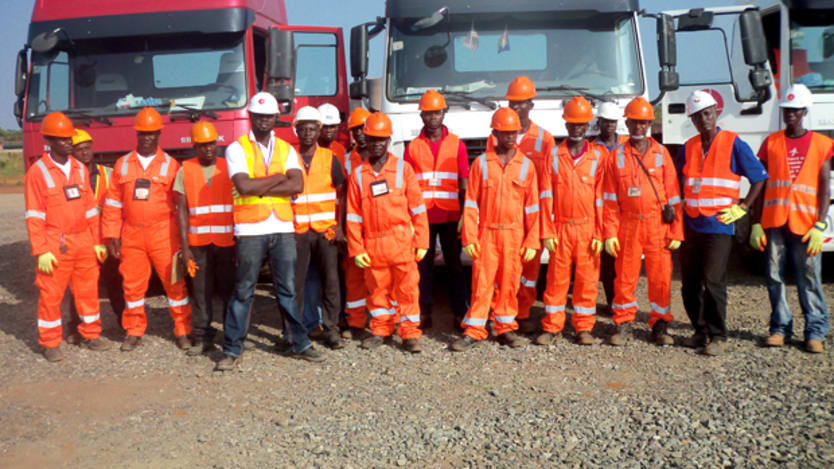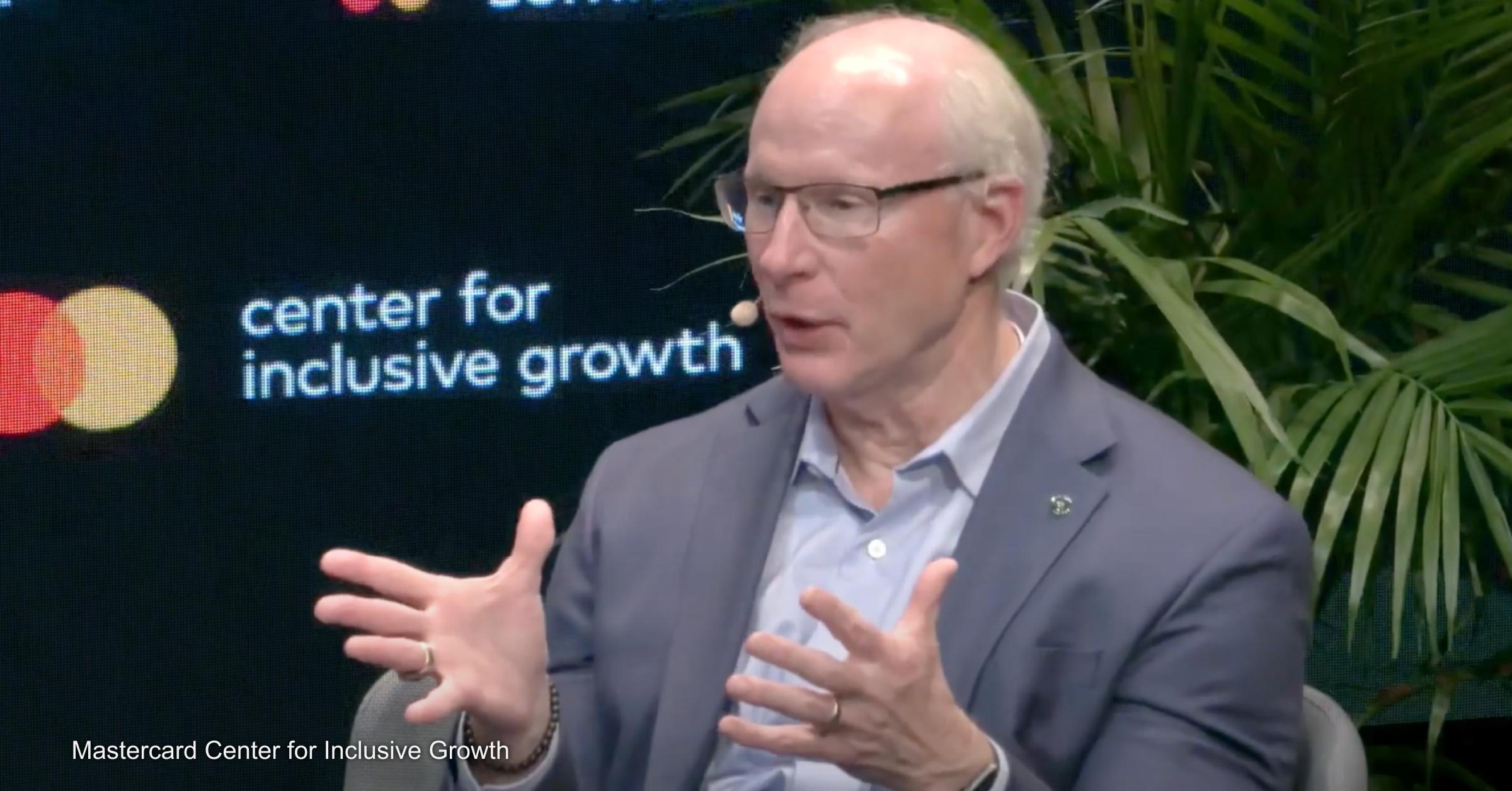
Fragile and conflict-affected countries have become a growing part of the development agenda, not least because of the impact of fragility and conflict on poverty levels, and vice versa.
More than a billion people live in countries affected by fragility and conflict. The recently released Organization for Economic Cooperation and Development report, “States of Fragility 2015,” emphasizes that reducing the poverty in these countries is an urgent priority. The 50 countries on the OECD’s fragile states list are home to 43 percent of people living on less than $1.25 per day, potentially reaching 62 percent by 2030. Boosting economic growth and improving livelihoods in these markets is therefore essential.
But where can jobs and economic opportunities come from?
The government is a significant employer, but it cannot provide the dramatic job growth that is so badly needed. The private sector must play a role, in particular small and midsize enterprises, which offer the greatest potential for job growth.
New, growing businesses provide more than just jobs — they offer essential goods and services to local populations, create jobs and give people a stake in peace and stability. But cultivating young businesses — the kind that are poised to grow steadily — is a very difficult proposition in fragile markets.
To ramp up, or even simply to get started, these firms need “risk capital” — forms of financing, loans or equity that have a higher risk tolerance than bank loans. Risk capital is scarce in countries recovering from conflict or emergency. Even with the necessary financing, business owners still face an uphill battle, managing rapid business growth for the first time, while facing logistical barriers in their operating environments.
Working toward solutions
The International Finance Corporation’s SME Ventures program provides innovative solutions to these challenges. It has recruited new fund managers and invested in four risk capital funds in six fragile states: Bangladesh, the Central African Republic, the Democratic Republic of the Congo, Liberia, Nepal and Sierra Leone.
Following a venture capital model, these fund managers then select, invest in and monitor new businesses. Eventually, the fund’s share is sold, providing a financial return to the fund managers and their investors.
But IFC’s support goes beyond investment. SME Ventures also provides technical assistance to both entrepreneurs and first-time fund managers. The program works with the World Bank Group and local governments to promote regulatory reforms, setting the stage for the funds and their successors. Critical to the program is the financial support of — and knowledge sharing with — investment partners Cordaid and the Netherlands Development Finance Co., or FMO.
Success in Liberia
One of SME Venture’s success stories is logistics firm GLS Liberia. New business owner Peter Malcolm King launched the firm in 2011 with funding and technical support from SME Ventures’ West Africa Ventures Fund.
Today, GLS has grown to become the leading logistics company in Liberia, employing 37 full-time staff. It competes on par with foreign firms, has won the last five competitive tenders in Liberia, and plans to expand further to meet the vast needs for logistics in the country.
During the peak of the Ebola crisis, for example, GLS handled incoming airfreight and successfully transported medical supplies from the airport, despite long distances and difficult roads.
6 key ingredients for success
Here are just a few of the ingredients that have helped SME Ventures grow businesses such as GLS Liberia:
1. An innovative, nimble model. The program invests not in entrepreneurs directly, but in fund managers who have a vested interest in carefully selecting and supporting the investee companies. While this model is not new, it is an unusual approach in fragile contexts, and IFC took the lead in recruiting the fund managers.
2. Focus on ‘stars’. In contrast to larger-scale programs, SME Ventures finances one to two dozen firms per fund. These firms stand out from the pack, showing growth that outpaces other local SMEs. Dedicating attention to firms with the most potential requires time and flexibility, but offers tremendous rewards.
3. Combine financing and technical assistance. IFC, as part of the World Bank Group, offers wide-ranging support to new businesses: risk capital through a fund, technical and business support for the firm owners, and startup assistance to the fund managers, who in most cases are first-timers, learning to achieve global standards. IFC also works with local governments to introduce regulation that permits the fund’s structure, which is often novel in these markets.
4. Create strong partnerships. Cordaid co-invested with IFC in WAVF while at the height of the Ebola crisis in 2014, and FMO invested in the Central Africa SME Fund from its inception in 2010. Not only did these investments strengthen the funds, but Cordaid also provided expertise gained from working with grant-funded resilient business development services for entrepreneurs in crisis situations, and results-based financing of public services in fragile countries. Their knowledge led to a solution during the Ebola crisis: zero-interest working capital loans to firms in Ebola-stricken countries to keep companies going during the crisis.
5. Implement peer learning and knowledge sharing. FMO hosted SME Ventures’ annual knowledge sharing event in both 2014 and 2015, where fund managers were able to learn from others. IFC, Cordaid and FMO shared lessons in working with other funds in different markets. Such events enhance the performance of fund managers, and in turn benefit the investee firms.
6. Be patient. Startup firms require time to show their full potential, especially in fragile and post-conflict environments. SME Ventures’ ability to take the long-term view is now bearing fruit, with follow-on funds planned and some exits expected in the near future.
The SME Ventures program does not only benefit the selected entrepreneurs, their fund managers or the investment partners. It also demonstrates to financiers globally that these markets contain growth potential, in turn multiplying the investment flows toward growing businesses in fragile and post-conflict countries.
By pioneering this model, IFC and its partners FMO and Cordaid aim to transform the world’s toughest markets.
Join Devex, the largest online community for international development, to network with peers, discover talent and forge new partnerships — it’s free. Then sign up for the Devex Impact newsletter to receive cutting-edge news and analysis every month on the intersection of business and development.










